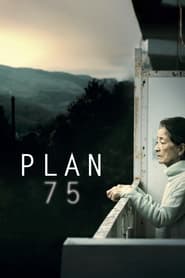Seattle International Film Festival 2023: Film #21
Plan 75 is essentially posing the question whether a death occurs on over a long period of time (with some highly-qualifed sense of consent and comfort) does this change the moral calculus involved, especially when compared to the infamous murder of nineteen people within a short 30-minute interval — although the narrative often feels drawn out, this is poetically replicated within the film's in-universe story itself.
It would take a perverse reading of the film to claim that the film is optimistic about a hypothetical state-run euthanasia programme. Although the cities of Hiroshima and Nagasaki are explicitly mentioned in one scene, Plan 75 is not making a reference to the two atomic bombs, but another element of the Second World War — the Holocaust. This is evident in the two sobering scenes where workers are going through the belongings of those how undergone a state-administered euthanasia, a visual allusion to, say, the harrowing scenes in Schindler's List (1999) with the piles of glasses, belts and so forth. A further parallel to the Holocoast is made in that it is the Filipino worker who has been delegated this awful task, as it determined to be too mentally degrading for a young, native Japanese worker. (Speaking of allusions, this film reminded me a lot of one of the better implications in P. D. James' 1992s book The Children of Men — in particular, the parallels to the state-sanctioned 'Quietus'.)
But if you remain unconvinced about the banality of the evil portrayed in this film, simply recall the scenes that show the authentically naff graphic design of the Plan 75 programme. Isn't this the most authentically mediocre and stale material a government would produce? (The study of banal graphic design in contemporary political communication remains singularly unexplored.) And, of course, Plan 75 would soon become 'Plan 65'...
It was striking that it is the young people in this film that begin to oppose a government programme preying on the elderly. As in, it would be a mistake to universalise the lack of intergenerational solidarity in Britain or the United States and tranpose it onto other countries without any other cultural context. Still, I suspect that any country that has experienced a dizzying rise in asset prices in the past few decades there will always be an ambient amount of ok, boomer sentiment, even within the West there are some exceptions. France, for instance, does not appear to have a young generation that evinces a short-term and callous view letting 'the old' fend for themselves, as Jeremy Harding recently outlined in the London Review of Books: "one lycéen argued [that] he hoped that a younger generation would do the same for his cohort when its time came[, and another believed] that pensions stood for other kinds of solidarity."
The "necro-political dystopia" of Plan 75 does not offer an alternative model for those who wish to end their life on their own terms. Despite the dystopia portrayed in this film, I remain convinced that this can be a moral good in theory, but is it right that this remains the preserve of those who can afford the services of expensive Swiss clinics? Still, much to admire in this film, especially the nice touch that the protests against the Plan 75 programme are never explained.
The system becomes a success […] and the drama shows us how this creates a new burden for old people: the burden of explaining to themselves why they don’t just do the rational thing and end it all.
— Peter Bradshaw (The Guardian)
Synopsis: In a Japan of the near future, the government program Plan 75 encourages senior citizens to be voluntarily euthanized to remedy a super-aged society. An elderly woman whose means of survival are vanishing, a pragmatic Plan 75 salesman, and a young Filipino laborer face choices of life and death.

